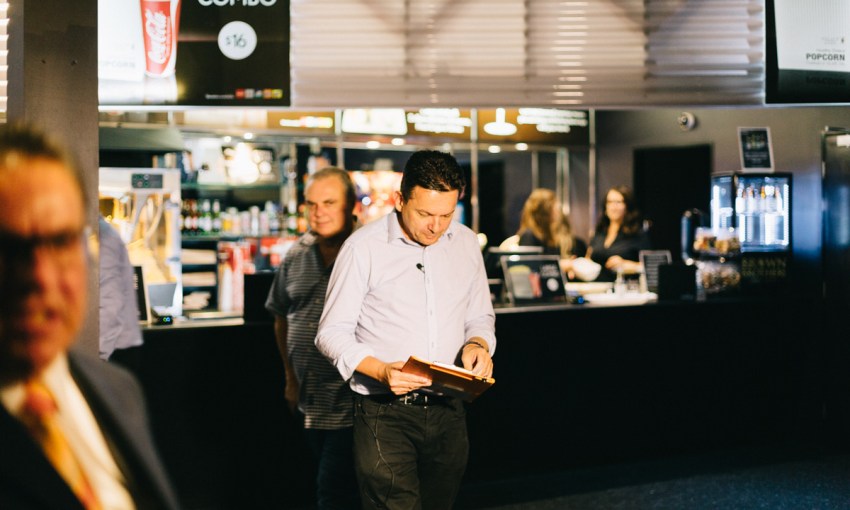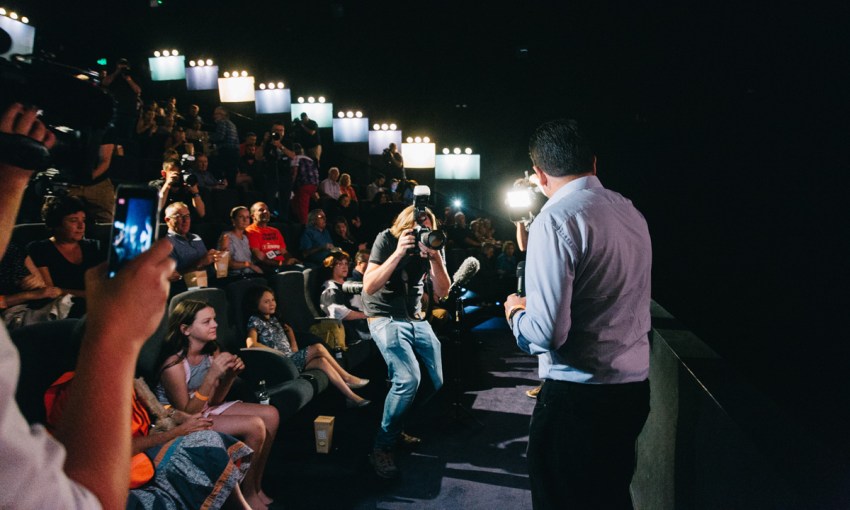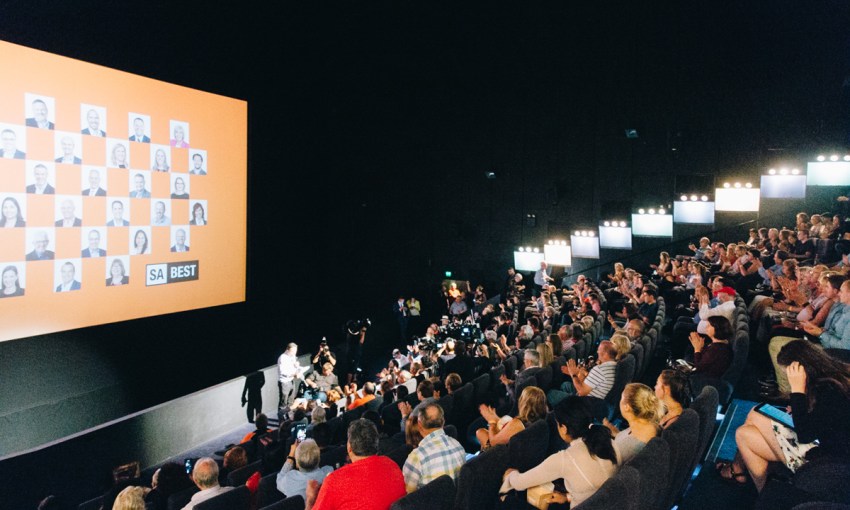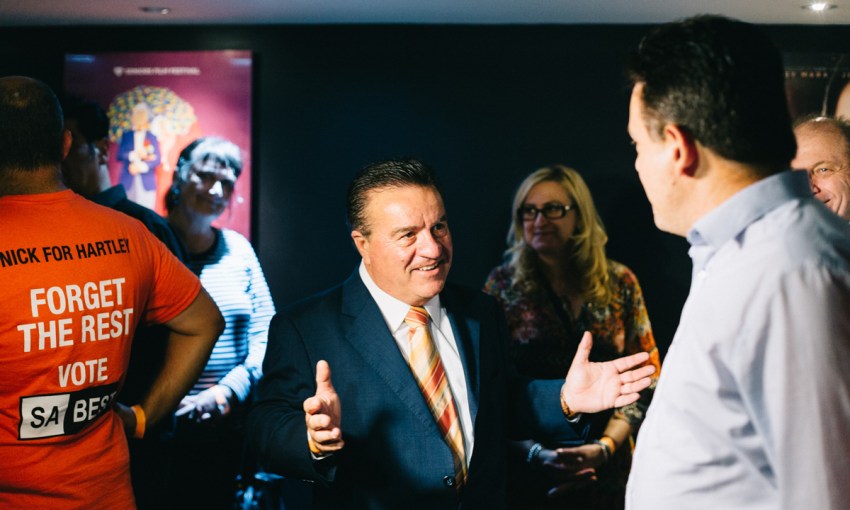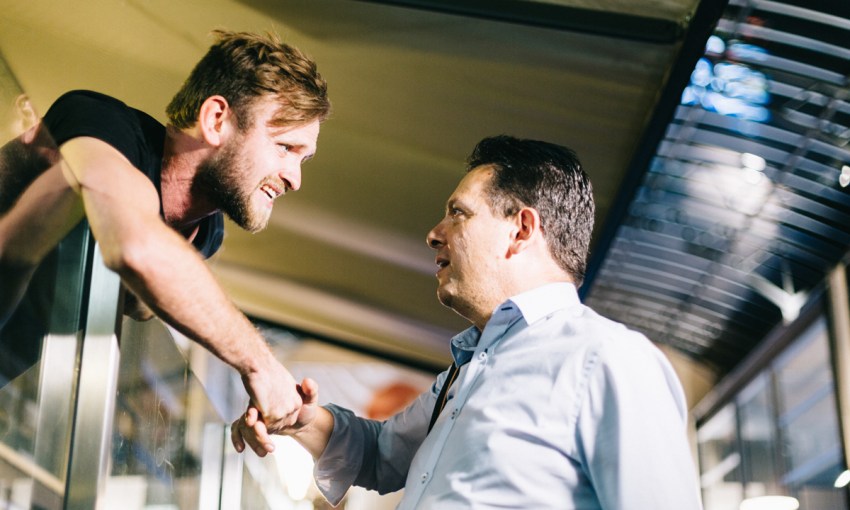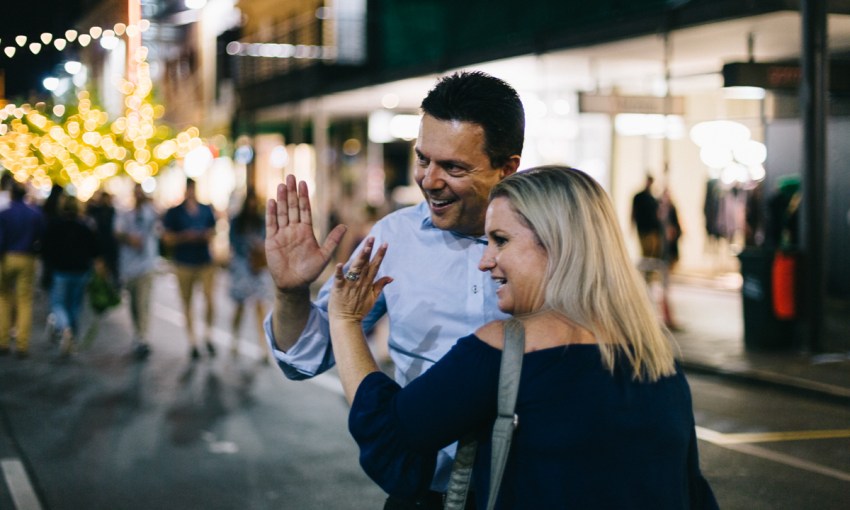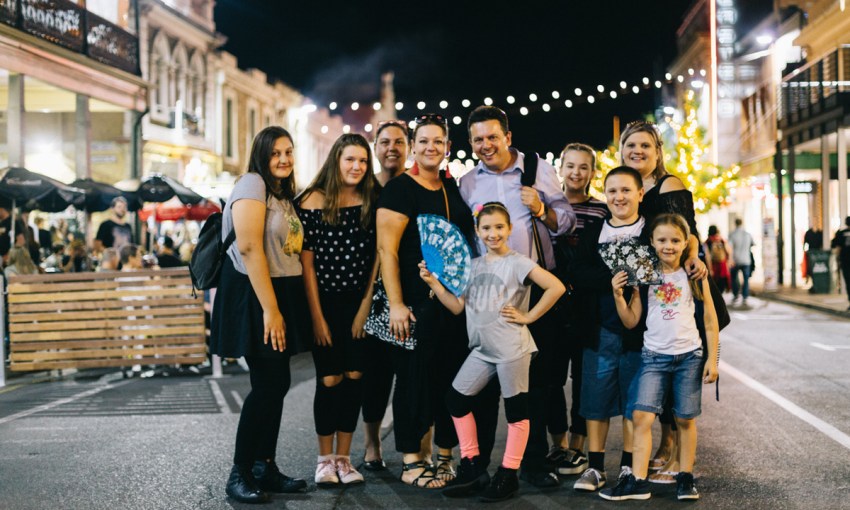Royce Kurmelvos, author of Rogue Nation, charts the downfall of Nick Xenophon's state election bid amid the sombre SA Best election party at the weekend.
Inside the SA Best election party
It started hopeful.
About two hundred SA Best supporters piled into Cinema 1 at the Palace Nova Cinema complex on Saturday night to wait to see if their political insurgency had taken hold. Cinema staff handed out popcorn and choc tops for what would become the latest instalment of the Nick Xenophon Show. Up on the screen eight metres high and seventeen metres wide, the election coverage rolled and the talking heads nattered. The candidate, or at least the only one who mattered, showed up at about 7 o’clock.
Two years ago, when Nick Xenophon had mounted his first assault on the federal electoral process, there had been twice as many people packed into the complex and the mood was electric. On this night though, there was a forced optimism in the crowd for a campaign which many felt was about to fizzle.
For those in the world of politics, this was a big one. It had been an unpredictable race involving a government that had held power for sixteen years straight, a redistribution and an outsider candidate who threatened the two-party status quo. Behind the scenes, the Liberals called him the “disruptor” and as much as they hated him, Labor insiders talked about how much they needed him to do well.
No one could know which way it would go until the very last but when the numbers came back, the state Liberal party, after so long in opposition would finally take government. Steven Marshall, the man who had lost the unlosable election last time around, had finally won the unwinnable election.
What it signalled was the changing of the guard in Adelaide. By Monday Jay Weatherill would be old news and would have announced his resignation. The party for the free market were in charge now and in his acceptance speech future Premier Stephen Marshall described it as a “new dawn”.
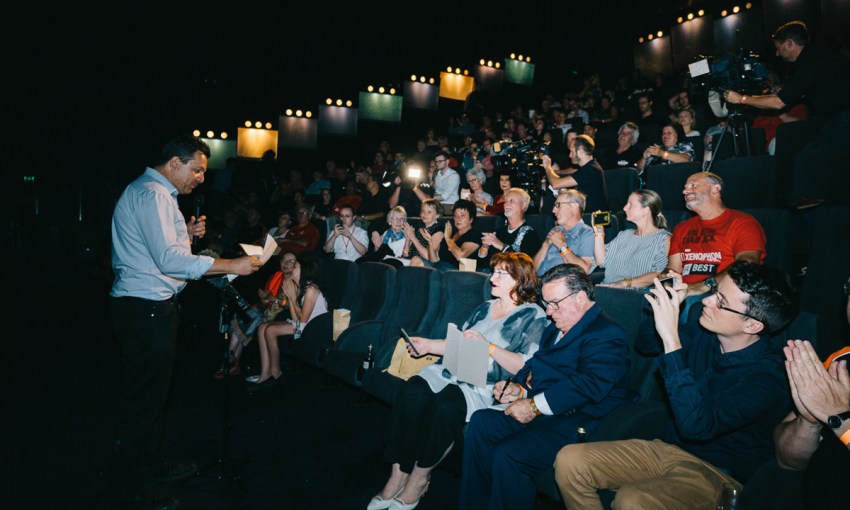
Even on the night it was easy to guess what would come next. In the cold light of day, the Liberals would claim a mandate from the people to contest issues like renewable energy and public servants around Adelaide would be growing nervous as they feared for their jobs. The Liberal party may have taken just 37.4 percent of the first preference vote by the following Monday in an election where roughly one in three people had voted for “someone else”. It was a similar division in the upper house, which was the only thing stopping the Liberal Party from remaking Adelaide in its image.
Once the ABC’s Antony Green called the contest for the Liberals with only half the vote counted, people began to drift away. Nothing clears a room faster than a losing campaign and the image of Simon Birmingham’s face projected onto the big screen tearing strips off their leader was too much to stomach. Nick Xenophon had been a “total failure”, Birmingham said and had “completely underperformed”. With a little over half the votes counted, Xenophon had failed to pick up a single seat.
“I could have told you two months ago how this was going to go,” said one SA Best insider.
Among themselves, the SA Best cadre talked about what went wrong. They pointed to the campaign run against them by the unions, or the $2 million spent by the Australian Hotels Association to crush them. People whispered about the gaffes, and the ad and the mistake in not working with the other minor parties to take on the majors. People talked about how the party had spread itself thin by running too many candidates. They had gone too big, too fast.
All the supporters meanwhile, just tried to keep hope.
“This is a beachhead we can build from,” Nick Xenophon had told them during a speech earlier in the night. “It is not the beginning of the end, but the end of the beginning.”
Many of the party faithful clung to that sentiment.
“It’s a bit disappointing,” said Ray Hopkins, a 69 year-old opal miner. “But we have a base from which to work from.”
“It’s a bit of a let-down, but we’re still successful. We showed the two party system is vulnerable.”
Maybe, but in politics there is no prize for second. Or third.
South Australian voters wanted change, but they hadn’t wanted Nick Xenophon. By 10:30 that night he had conceded the state election to Stephen Marshall. He did his final interviews with the news cameras, and left the building through the front doors without an entourage.
The television cameras followed him outside into the streets which were filled with people drinking to celebrate St Patrick’s Day. Those in the beer garden at The Elephant saw him coming first. Some reached over the fence to shake his hand. Others heckled.
Around the corner on Rundle Street, people stopped him for photos. He said yes. Some people stopped to say they had voted for him. One woman even wished him well tonight. She hadn’t seen the result. He told her the bad news.
At his car, he stopped for his final interview of the night.
“Scarred but still standing,” Xenophon said. “We’ve got two people in the legislative council, I’ll always be an agitator. We’ll have a foundation to build on in the parliament.”
Would that be enough?
“It’ll have to be.”



